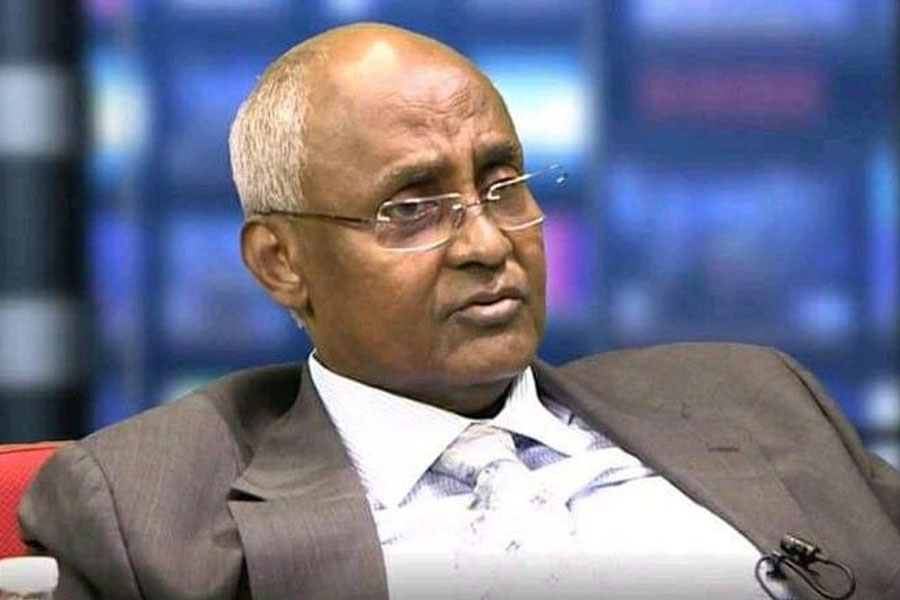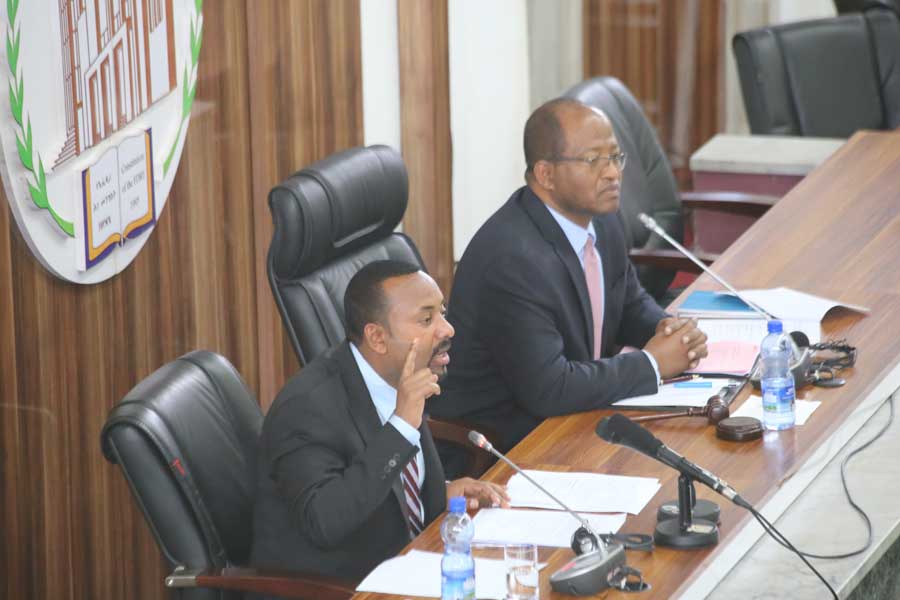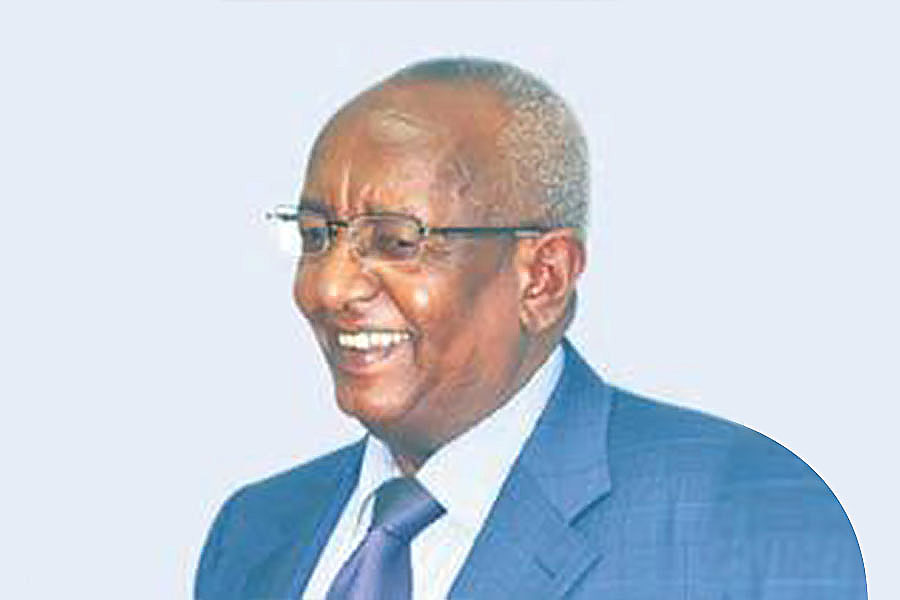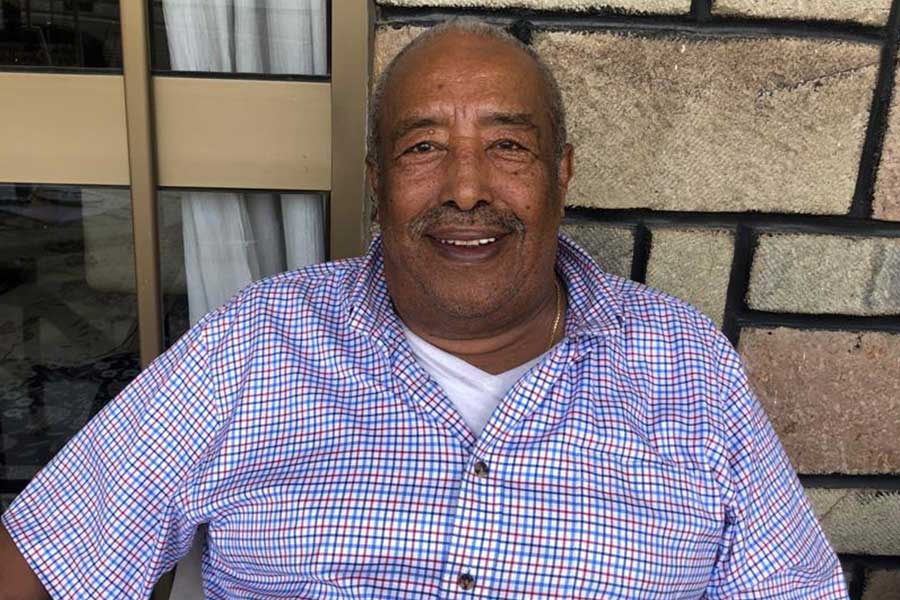
Obituary | Oct 03,2020
Fikreselassie Wogderess was 46 years old when he was thrown into jail after a coalition of rebel forces fought their way into Addis Abeba in 1991. The next two decades of his life would be anticlimactic for a man that had once rubbed shoulders with the powerful and was once himself at the peak of power.
By the time he was released, after his sentence was commuted from death, he had little pretensions of how his country had changed. He was also in his mid-60s and needed to fly to Bangkok, Thailand, for medical treatment.
When he went to the immigration office to get a new passport, he stood at the back of a long queue that had gathered in the morning. He had not expected to be recognised, let alone afforded any special service. Like most regimes in Ethiopia, the EPRDF had gone to great lengths to discredit their predecessors. A man that served the Dergue regime as a Prime Minister, however briefly, was a target.
But once he stood at the end of the line at the immigration office, murmurs began. Someone finally collected the courage to ask whether he was Fikreselassie, once the Prime Minister of Ethiopia. He answered that he was. The people in the queue could not believe how he could be made to stand in line with them, given the status he once held. One by one, they yielded their places to him until he was at the front of the line.
This was vindication for Fikreselassie, who believed in the power of people. This was despite his reticence.
“He was a people-centric person,” says Fisseha Desta (Col.), former vice president during the Dergue years.
The two knew each other during the “revolution years,” and then they were incarcerated together for two decades. When they were released, they moved into the same neighbourhood in Ayat, Addis Abeba. It was an almost half a century old friendship until the passing of Fikreselassie of complications from kidney failure at Hallelujah Hospital, where he was recovering from COVID-19. Survived by two daughters and a son, the former Prime Minister was laid to rest on December 16, 2020.
Before the Dergue, Fisseha was a dedicated air force man. He was only 17 years old when he joined in the early 1960s. He did so well that four years later, he was part of a batch that was sent to the United States for a brief training on the handling of new technologies.
He was a medium level officer in the army by the time he was sent to represent his command in a recently established coordinating committee of the armed forces and police. This committee, later christened the Dergue, would months after its establishment make up the entirety of the provisional government set up to see Ethiopia’s transition into socialism.
Within three years, the bloody struggle for power within the Dergue that saw Mengistu Hailemariam (Col.) come out on top would propel Fikreselassie to the secretary-generalship. This was also the year that Somalia invaded Ethiopia, making him one of the familiar faces as the government mobilised forces to defend its territory.
It was not an easy job and, combined with the post-Dergue years of his prison time, it would contribute negatively to his health. Indeed, an era that saw the bloody Red Terror campaign, a biblical famine and a grueling civil war, officialdom was not for the fainthearted in these times.
It was a slight and brief relief when a civilian government was established in 1987, placing him as its first Prime Minister. It was a short-lived time in office for him for he was replaced after only two years. At just 44, he was retired. Many attribute this to a possible disagreement with Mengistu.
“He thought independently and liked to speak his mind,” says Fisseha. “Mengistu might not have liked it.”
A life of public service, followed by long years in prison, took a toll on the personal life of Fikreselassie. There were times when he could not see his family for long stretches of time. His son, Messay, once asked him if it was all worth it – the stressful job, the separation from his family, the long prison sentence, the health problems he incurred as a result.
“I’d do it again,” said Fikreselassie without thinking for a second.
He loved his family, but that was not much different from the country either.
“His fight for freedom, unity and change was all for the family, and the family was his country,” says his son Messay.
An ardent patriot, Fikreselassie was delighted to see the EPRDF era come to an end, with the rise to Office of Prime Minister Abiy Ahmed (PhD). He minced no words about his feelings toward the Tigray People’s Liberation Front (TPLF). He wanted them gone.
“I'm happy he saw this before his passing,” says Fisseha, in reference to the military operation against the TPLF, which left their forces significantly diminished after over a month of fighting.
PUBLISHED ON
Dec 19,2020 [ VOL
21 , NO
1077]

Obituary | Oct 03,2020

Fortune News | Oct 26,2019

Viewpoints | Nov 30,2024

Obituary | Feb 19,2022

Obituary | Jul 13,2020

Dec 22 , 2024 . By TIZITA SHEWAFERAW
Charged with transforming colossal state-owned enterprises into modern and competitiv...

Aug 18 , 2024 . By AKSAH ITALO
Although predictable Yonas Zerihun's job in the ride-hailing service is not immune to...

Jul 28 , 2024 . By TIZITA SHEWAFERAW
Unhabitual, perhaps too many, Samuel Gebreyohannes, 38, used to occasionally enjoy a couple of beers at breakfast. However, he recently swit...

Jul 13 , 2024 . By AKSAH ITALO
Investors who rely on tractors, trucks, and field vehicles for commuting, transporting commodities, and f...

Sep 27 , 2025
Four years into an experiment with “shock therapy” in education, the national moo...

Sep 20 , 2025
Getachew Reda's return to the national stage was always going to stir attention. Once...

Sep 13 , 2025
At its launch in Nairobi two years ago, the Africa Climate Summit was billed as the f...

Sep 6 , 2025
The dawn of a new year is more than a simple turning of the calendar. It is a moment...